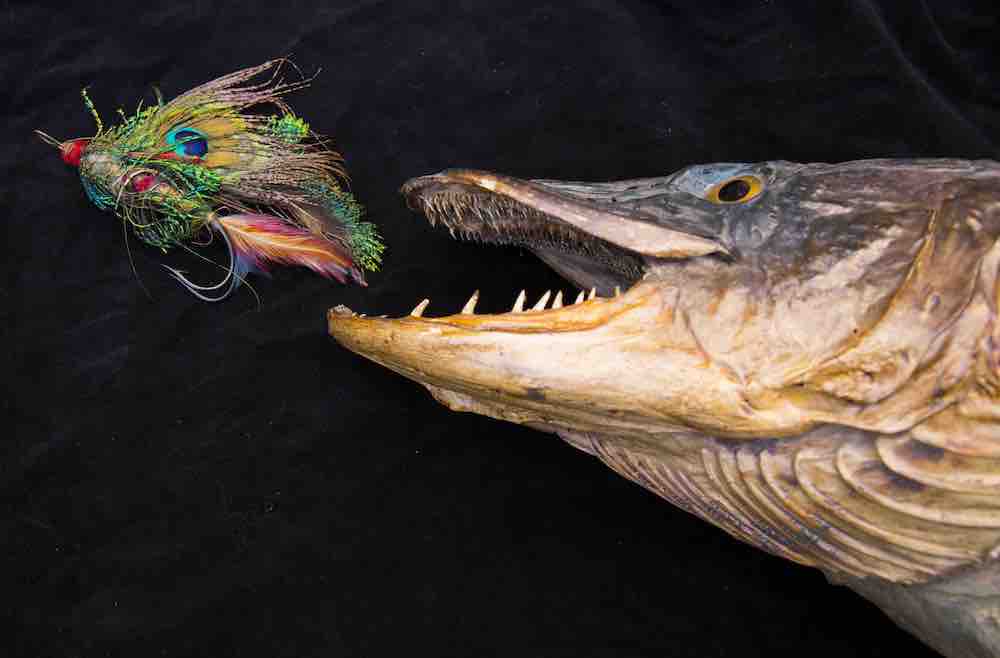
This vintage monster pike fly, possibly a Common Peacock pattern, is tied with a peacock herl wing on a large 10/0 double hook, was used to fish for the large pike that inhabit the canals, rivers, and lakes in the U.K.
The dressing of the classic pike fly was described by noted angling author Henry Cholmondeley-Pennell in his “Book of the Pike” in 1865 as follows:
“As a rule pike-flies cannot well be too gaudy, though they may easily be too big. The bodies should be fat and rough, made of bright coloured pigs’ wool, cocks’ hackles, etc.., and plentifully bedizened with beads and tinsels; the wings of two peacocks’ moon feathers (tail feathers with eyes in them).”
Fly fishing for pike can involve hours of stalking and thrashing in the hopes of attracting one of these beasts, with the efforts of the angler richly rewarded by a large wake and vicious strike as the fly disappears into their cavernous mouth.
The toothy pike featured in the photo, has, in fact, already met its demise- a fine example of British taxidermy of the head of Mr. Esox Lucius.
Steve Woit is the author of “Fly Fishing Treasures: The World of Fly Fishers and Collecting”, a book featuring profiles of 30 experts and collectors and over 800 photographs of rare and collectible fly rods, reels, flies, books, and ephemera.






Arcane Pronunciation Note for Non-Brits:
“Cholmondeley” is (naturally, for a still comparative few of us over here at least) pronounced “chumley”.
So that you fellows know….
Paul:
Thanks for the assist on the pronunciation of Cholmondeley–always wondered about that!
How about G.E.M. Skues?
Of course, now I can give you some pointers on pronouncing some towns in our own Commonwealth of Massachusetts:
Worcester (“Woooosta”)
Leominster(“Laminsta”)
Billerica (“Billricka”)
Woburn (“Wooobin”)
Cheers!
Don’t forget Haverhill or Maahblehead.
Those modern-day Massachussetts pronuniations are spot-on – today’s residents of their original English namesakes pronounce them pretty much the very same.
Billericay (somewhere in that county once famous for its frequently transported to The Colonies convicts, Essex, I believe) tends to be “Bill-er-ricky” though – hence this old song by Ian Dury, a great Essex Man of the Punk era, more famous for his other songs like Rhythm Stick (second link below).
https://youtu.be/T-JIzWFfsPk
https://youtu.be/0WGVgfjnLqc